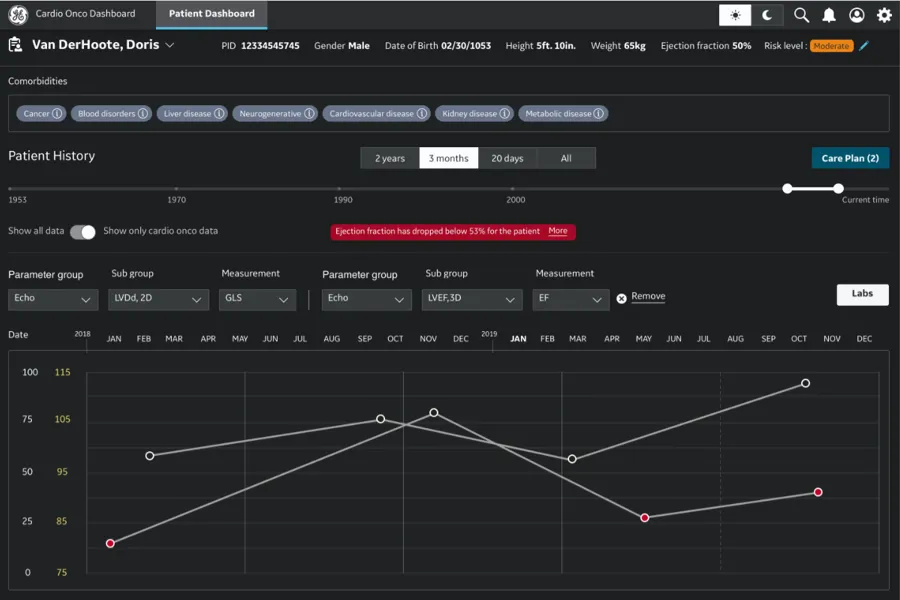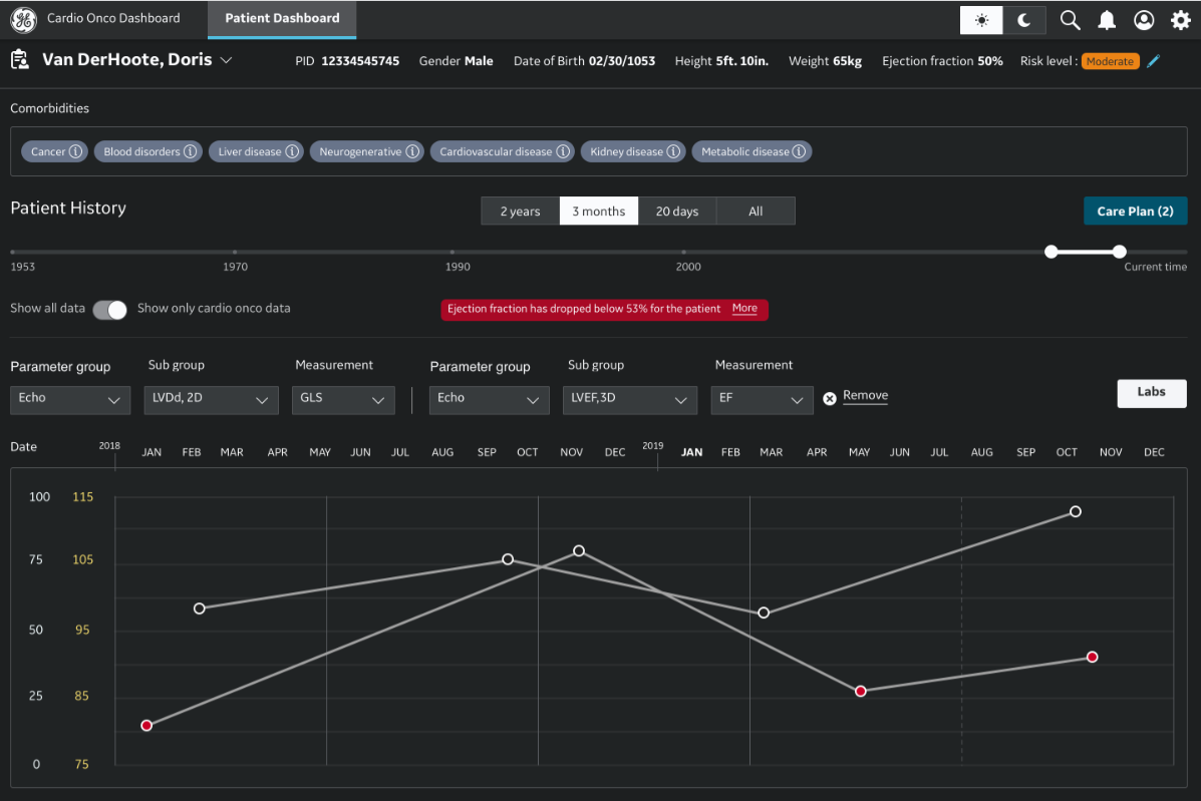The Cardio-Oncology Dashboard application
In most hospitals around the world, different information relevant for cardio-oncologists, including chemotherapy type and doses, cardiac morphology and function data, blood sample results, etc. are stored in various data systems. Our goal is to collect all this information in one place and provide a quick overview of patient relevant data and give guideline directed diagnostic and therapeutic advice.

The Cardio-Oncology Dashboard application is a diagnostic tool designed to aid personnel in providing therapeutic care for their patients. Our project diverges from the Afib Dashboard, which concerns atrial fibrillation.
Some of the important tasks featured in the cardio-oncology dashboard are calculation of cumulative anthracycline doses and displaying doxorubicin equivalent doses of various anthracyclines. Another feature is a warning triggered by the change of various parameters relevant for cardio-oncology patients, such as myocardial function parameters assessed by echocardiography, blood sample results, electrocardiogram, etc. Under development is a risk factor calculator based on the first cardio-oncology guidelines published in 2022 (ESC Guidelines on cardio-oncology developed in collaboration with the European Hematology Association (EHA), the European Society for Therapeutic Radiology and Oncology (ESTRO) and the International Cardio-Oncology Society (IC-OS)). The goal of the calculator is aiding cardio-oncologists in selecting a treatment plan in accordance to guidelines while taking relevant risk factors into consideration.
DIPS has mapped relevant patient data for the cardio-oncology tools, both in the electronic health record and in specialist systems. Data sources have been evaluated for reusability in the project. Test data has been tailored for testing the new ESC guidelines and made available in the development environment Open DIPS. Initial framework for hosting third-party applications in the EHR (DIPS Arena) has been made ready for the cardio-oncology tools.

Resarchers involved
Sebastian Sarvari, MD/PhD, OUS
Sairam Ghanta, Data Scientist/Engineer, OUS
Morgan Jakobsen, Senior software architect, GEHC